|
0 Comments
Read/Watch: KATU Interview with Portland Urban Coyote Project Advisor, Professor Barbara Brower12/10/2018 Watch: Fox 12 Oregon Interview with Portland Urban Coyote Project Director, Zuriel Rasmussen10/11/2017 |
Coyote NewsVisit this page for news coverage and updates about the Portland Urban Coyote Project (PUCP). Archives
July 2023
Categories |

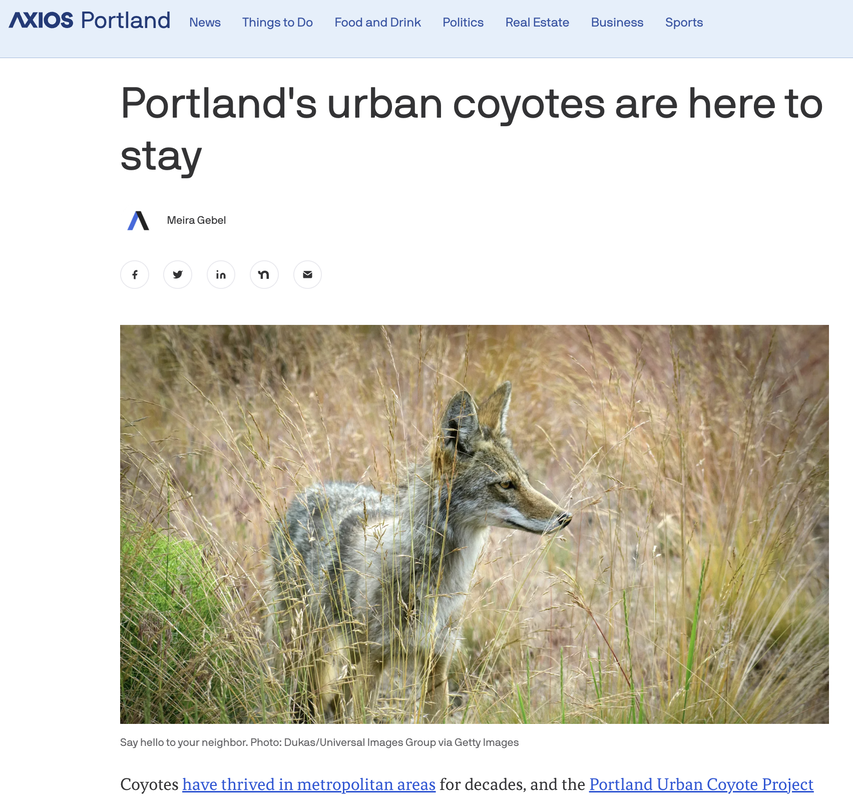
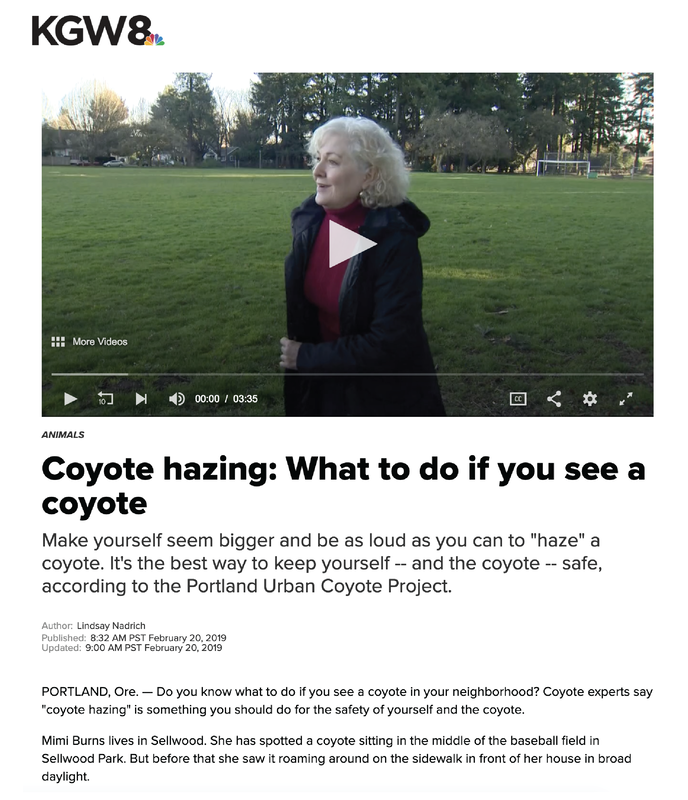
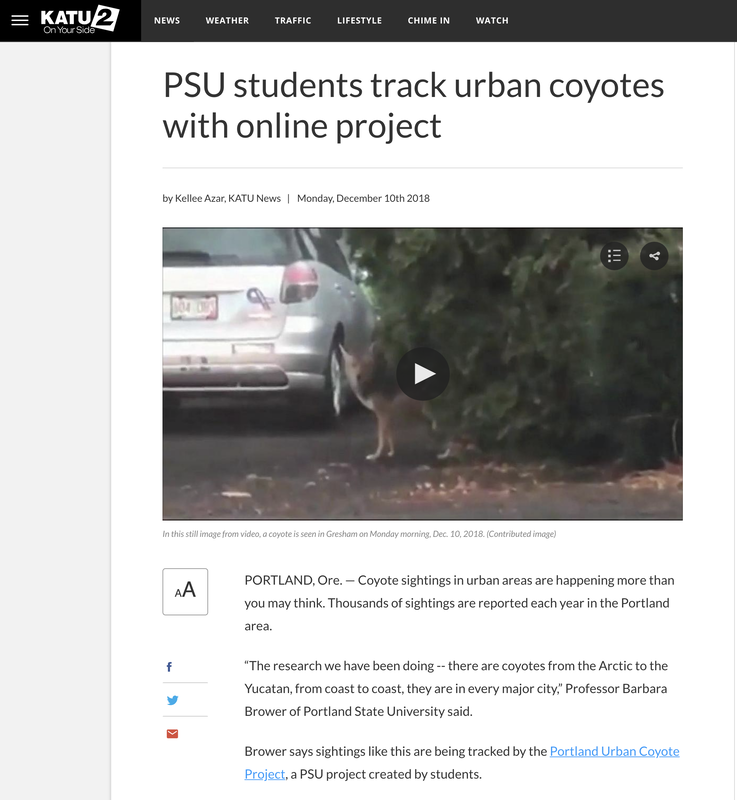
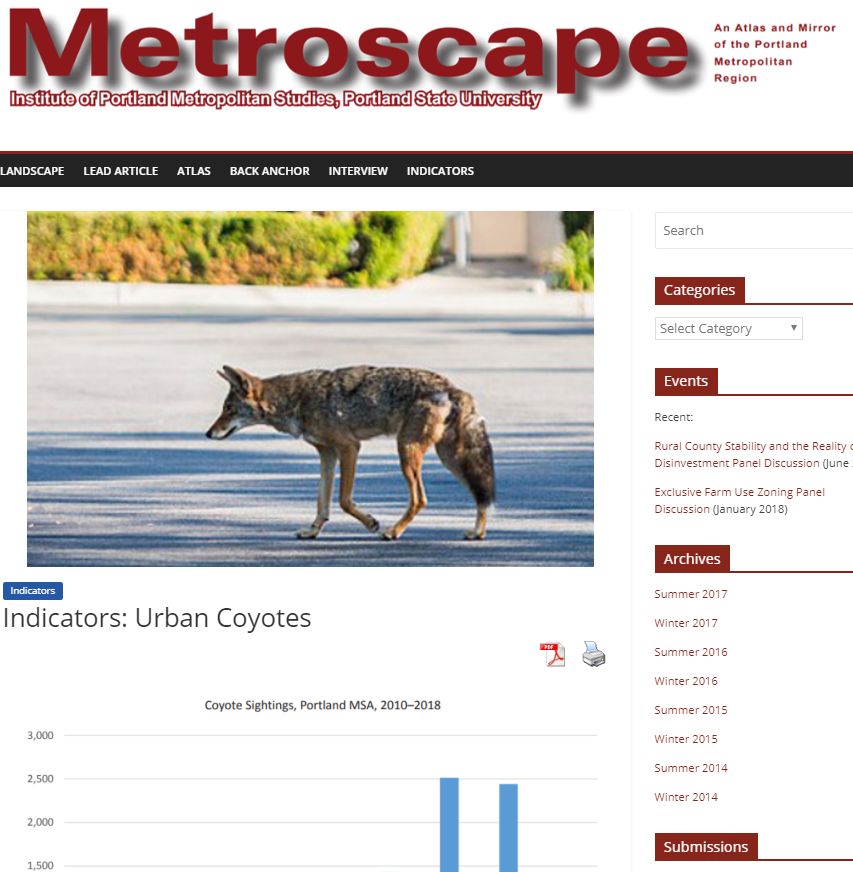
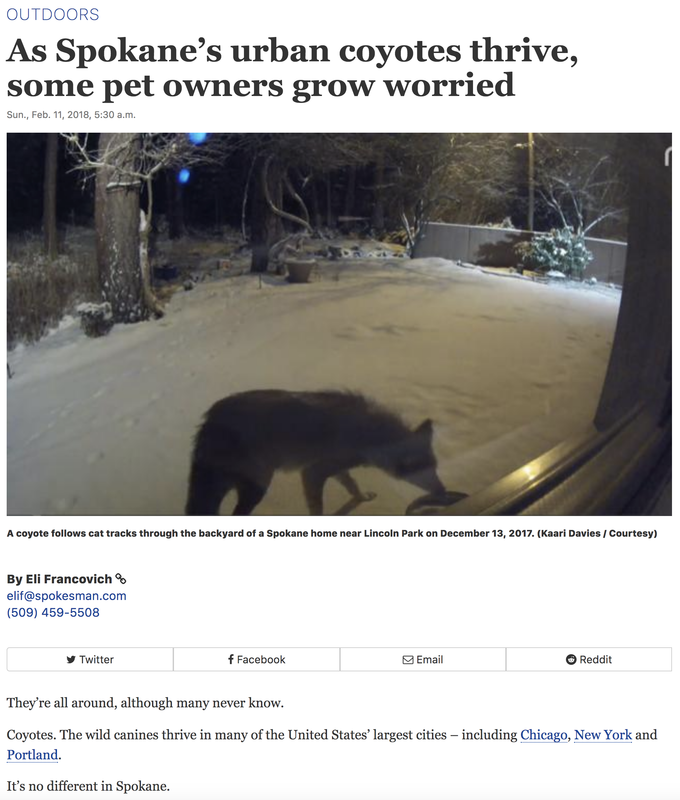
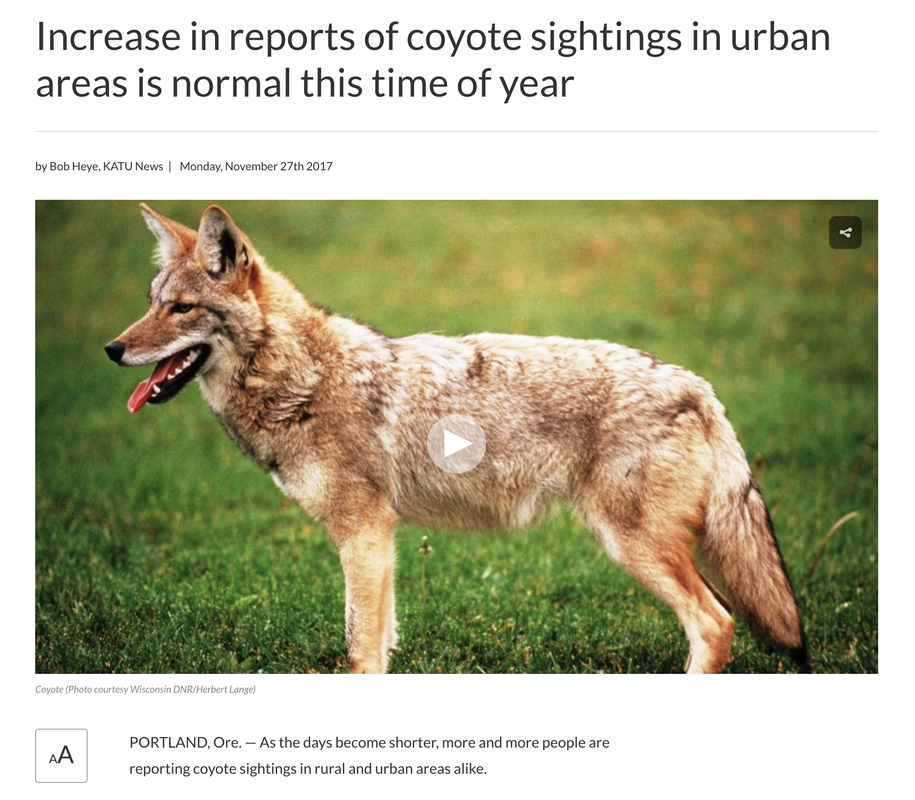
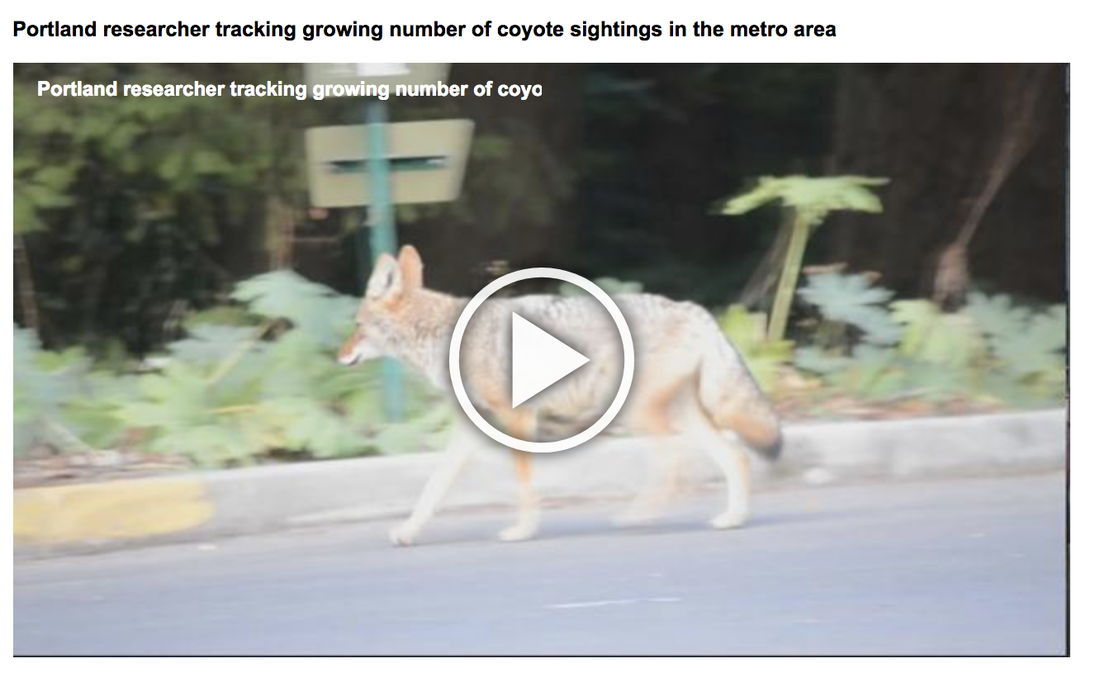
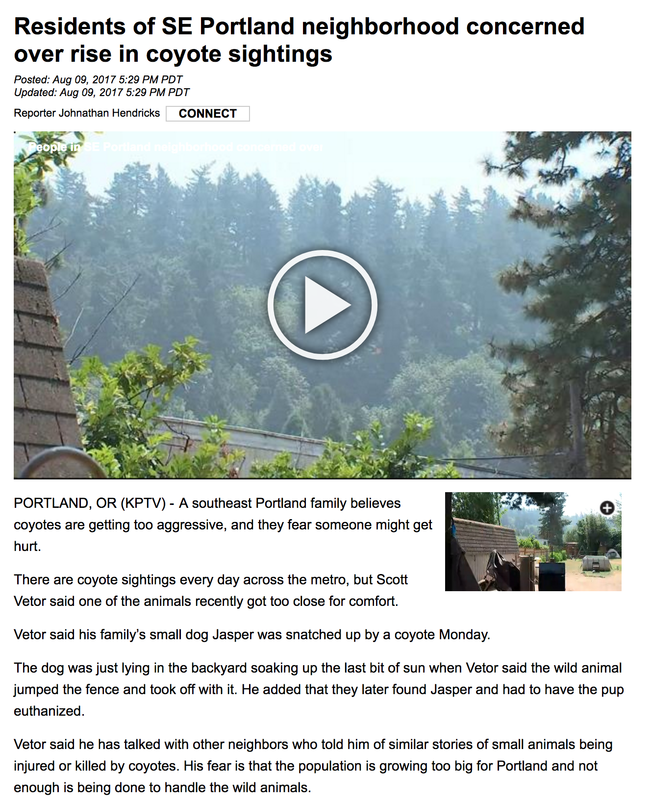
 RSS Feed
RSS Feed